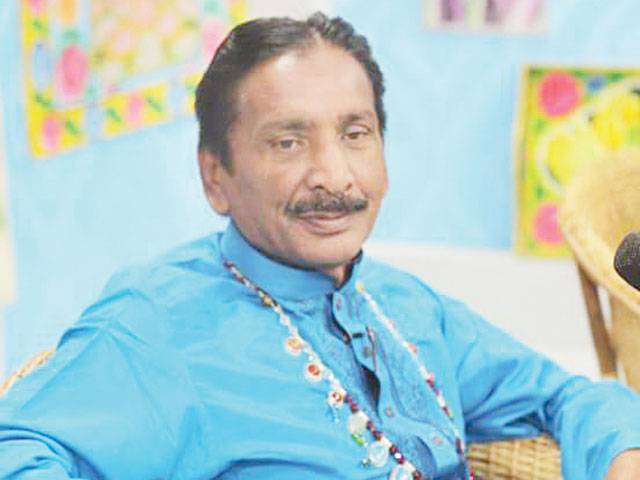LAHORE-The stage is set in a village near Jhang for a wedding function, with people awaiting their beloved singer Ustad Talib Hussain Dard who would sing for them traditional dhoray, mahiyeh and gawan. While villagers anticipate a great night ahead, Dard reaches the stage and starts with a dhora, a four-liner genre of local poetry, and a mahiyah, a couplet, in his high-pitched voice and then his melodious gawan, song, on harmonium and tabla - duet tin tall - grips the entire environment.
“Jehri rat howay sung sajna day.. ohdi jhub kyon ho wainde aay dhami
Jehri rat sajan toon nikhar wanjeway.. o kyon ho wainde aay lambi”
(Why the night passes fast in the company of the beloved
Why without the beloved the night never ends.)
People start dancing in the course and their enthusiasm reaches its peak just before the ceremony ends.
Dard might be unknown to many whose lives have been confined only to commercial centres of Lahore, Rawalpindi or Faisalabad but the man rules hearts of thousands of people in central and southern Punjab. He sings at festivals, marriages and other celebrations in Jhang, Sargodha, Chiniot, Mandi Bahauddin, Hafizabad, Khushab, Bhakar, Layyah, Khanewal and other districts.
He is not only popular among local clans of Baloch, Naul, Haraj, Sials and Syed but equally celebrated among settler castes of Warriach, Cheema, Chatha, Tarar etc and young generations of migrated Jaat, Rajput and Arain who settled in these areas after 1947. Among vocalists who sing folk music in central and south Punjab, Talib Hussain Dard is undoubtedly oldest and most popular singer.
Born in a small town of Khanowana, situated at Jhang-Chiniot Road, Dard started singing at age of 15 in 1967. He rose to fame in late 80s and his voice echoes everywhere, in streets and bazaars, across the Punjab province till today.
The sectarian violence during Ziaul Haq regime in Jhang - the centreplace of Dard’s singing - could not stop this folk singer spreading the message of love and peace through his music. And it is because Dard belongs to an area where great Sufi saints Hazrat Sultan Bahu and Pir Shah Jewna were born, and where a legendry folk love tale of Heer-Ranjha took birth.
“I’m above 65 and not in great shape these days but I have not left singing,” the singing legend told The Nation in a telephonic conversation. His voice broke down when asked if he were ever awarded. “No. My services in folk music have never been recognised by the government yet I’m happy for what the people did for me – in the shape of love and respect.”
Dard said he learnt folk singing from legendary Ustad Nazar Hussain Dhokri and classical from Ustad Salamat Ali Khan. He also shared that he had established a music academy in Jhang few years ago but it almost closed due to lack of resources. Imran Talib, son of Talib Dard, who has recently started singing along with his father told The Nation that Dard has so far sung more than 20,000 songs, dhoras and mahiyas. His singing volumes number in thousands.
As central and southern Punjab produced many big names in Jhangochi and Sariaki poetry, including Ghulam Muhammad Dard, Hayat Bhatti, Altaf Tafu Bharwana, Riaz Hussain Sial, Malk Ghulam Yasin, Shahid Mehmood Aqib, Shah Muhammad Danish, Abid Tamimi, Imdadullah Taqveem, Riaz Kaifi, Mian Mustaf, Mazhar Bokhari, Abdur Rehman Sehrai, Nasir Taib, Rab Nawaz Hashmi, Samar Bharwana and Latif Shedai (majority of them born in Jhang), Dard gave his melodious voice to their poetic masterpieces.
“Ustad Talib Hussain Dard is a magician. He is a very popular singer and sings in high pitch, contrary to late Mansor Malangi who was known for his low pitch. He (Dard) will grip your heart and mind when you would start listening him. Besides a legend, Dard is humble and nice human being,” said Hasnat Ahmad Baloch, a teacher by profession and great fan of the folk singer from Jhang.






